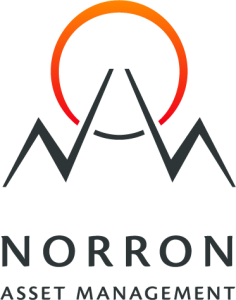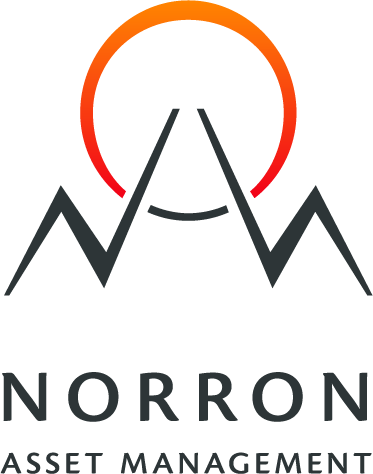Sustainability-related disclosures – Norron Alpha

This financial product (the “Fund”) promotes environmental or social characteristics in accordance with article 8 in Regulation (EU) 2019/2088 of the European Parliament and of the council of 27 November 2019 on sustainability‐related disclosures in the financial services sector. The Fund’s investment policy contains broad environmental, social, and governance criteria. The ESG criteria are linked to the United Nations 17 Sustainable Development Goals (UN SDGs), which contain a wide range of environmental, social and governance goals such as climate action, decent work and economic growth, responsible consumption and production, good health and well-being, peace and justice, sustainable cities and commodities etc. The UN SDGs form the basis for the Fund’s promotion of environmental and social characteristics and the Investment Manager integrates these goals into the Fund’s investment strategy to better manage risk, generate sustainable long-term returns, and promote environmental or social characteristics. The following disclosures describe the specific risks of investing in this Fund and what investment strategies are utilized by the Investment Manager to further the Fund’s broad ESG criteria.
Investment Strategies used to fulfil the Sub-Fund’s ESG considerations
Negative Screening
The Investment Manager uses negative screening of assets by excluding industries from the investment universe that the Investment Manager considers to be associated with particularly high ESG risks and by its nature would risk to do significant harm to the Fund’s ESG characteristics. The Investment Manager exclude companies within the following industries: Pornography, tobacco, cannabis, alcohol production, controversial and conventional weapons, gambling, coal (fossil fuel), oil and gas (fossil fuel) that do not actively work with emission reductions in accordance with the Paris Agreement. The Investment Manager also excludes companies that do not consider environmental factors, violate international standards and companies with elements of corruption. More information about the Investment Manager’s application of the exclusion criteria can be found on https://www.norron.com/en/organisation/hallbarhet/norrons-exluderingskriterier/.
In order to avoid investments, other than those specified above, that do significant harm to the Fund’s ESG considerations such assessment is included in the Investment Manager’s investment process.
Positive Tilt
The Investment Manager has incorporated the UN SDGs and the Ten Principles of the UN Global Compact in its investment process, which includes criteria on human and labour rights, environment and anti-corruption. Furthermore, in order to generate sustainable long-term risk-adjusted returns for the shareholders of the Fund the Investment Manager favours investments that combine ESG considerations and related measures with financial growth and return. Thus, the Investment Manager, when selecting investments, favours companies that have undergone the transition, and adapted its business activities, towards a sustainable economy. In the Investment Manager’s quest to facilitate change and social restructuring in line with long-term sustainability goals, the Investment Manager also favours companies that have either undergone part of or prepare its business for such transition, provided that they are able to demonstrate a satisfactory plan and engagement to achieve ESG-targets. The above also includes companies that conduct business activities that, by provision of their products or services, enable a substantial contribution towards a sustainable economy to be made in other companies’ business activities.
Methods, monitoring and data sources
During the investment period, ongoing sustainability analysis and screening of the fund’s holdings are performed. The analysis and screening take the form of monitoring the sustainability risks of the portfolio and individual investments as well as assessments of the conditions for the investments to maintain a high environmental and social standard. This also includes incident management in the event of incidents or circumstances that may lead to increased sustainability risks for the fund or material damage that stop the fund achieving its sustainability attributes. All these factors are essential to optimize the risk-adjusted return for the fund in a methodical way. Norron bases the analysis on both internally and externally prepared analysis and data. The internal analysis consists of Norron’s own assessments of the investment’s sustainability-related conditions. The external analysis in turn consists mainly of company and external business monitoring from third parties as well as sustainability data from, among others, Sustainalytics.
Limitation to methodologies and data for products that promote environmental or social characteristics
The fund always strives to have as complete and reliable information as possible about the fund’s investments. The fund usually consists of between 25-35 companies and obtains information about the portfolio companies from external data sources, third-party analysis and through its own internal analysis. The fund cannot, however, guarantee that the sustainability information obtained is always complete and correct. Especially for smaller companies, relevant information for monitoring is not always available. If significant information for the fund’s sustainability profile is lacking and the information risks causing significant damage to the fund’s promotion of sustainability characteristics, the fund primarily seeks such information from external data providers. Secondly, the fund seeks the actual information from the company in question. However, the fund cannot guarantee that the sustainability information available is complete for all of the fund’s holdings.
Engagement Policy
The fund applies an active management philosophy in order to be able to generate the greatest possible sustainable and economic value creation for the fund unit holders. The ownership strategy is to follow a productive ownership and change strategy and work together with the portfolio companies, where a continuous dialogue is maintained with the companies in which the fund invests. As such, the fund can influence and follow up the portfolio companies’ sustainability work so that it contributes to the fund fulfilling its sustainability characteristics. Interaction takes place on an ongoing basis through meetings with company representatives, conferences and workshops, meetings with third-party analysts, case studies and by voting on important issues at general meetings. The portfolio manager also participates in various meetings to increase the knowledge and understanding of the portfolio companies’ sustainability work. More information about Norron’s principles for shareholder engagement can be found on the website under Legal information.
Use of index
The Fund only uses an index for marketing purposes.
Sustainability Risks
Risks to the financial returns of the Fund
The broad ESG criteria of this Fund may lead the Investment Manager to exclude securities for non-financial reasons in order to achieve the stated ESG characteristics. The Fund’s exclusion criteria does not take into account market opportunities and the financial returns of this Fund may not be equivalent or surpass those of non-ESG financial products. Considering sustainability risks in the investment process may however also lead to positive returns in comparison with non-ESG financial products. A sustainability risk involves an environmental, social or governance-related event or condition that, if it occurs, could cause an actual or potential material negative impact on the value of the investment. Sustainability risks thus constitute a financial risk that can affect the value of investments over time.



 For swiss investors press here
For swiss investors press here